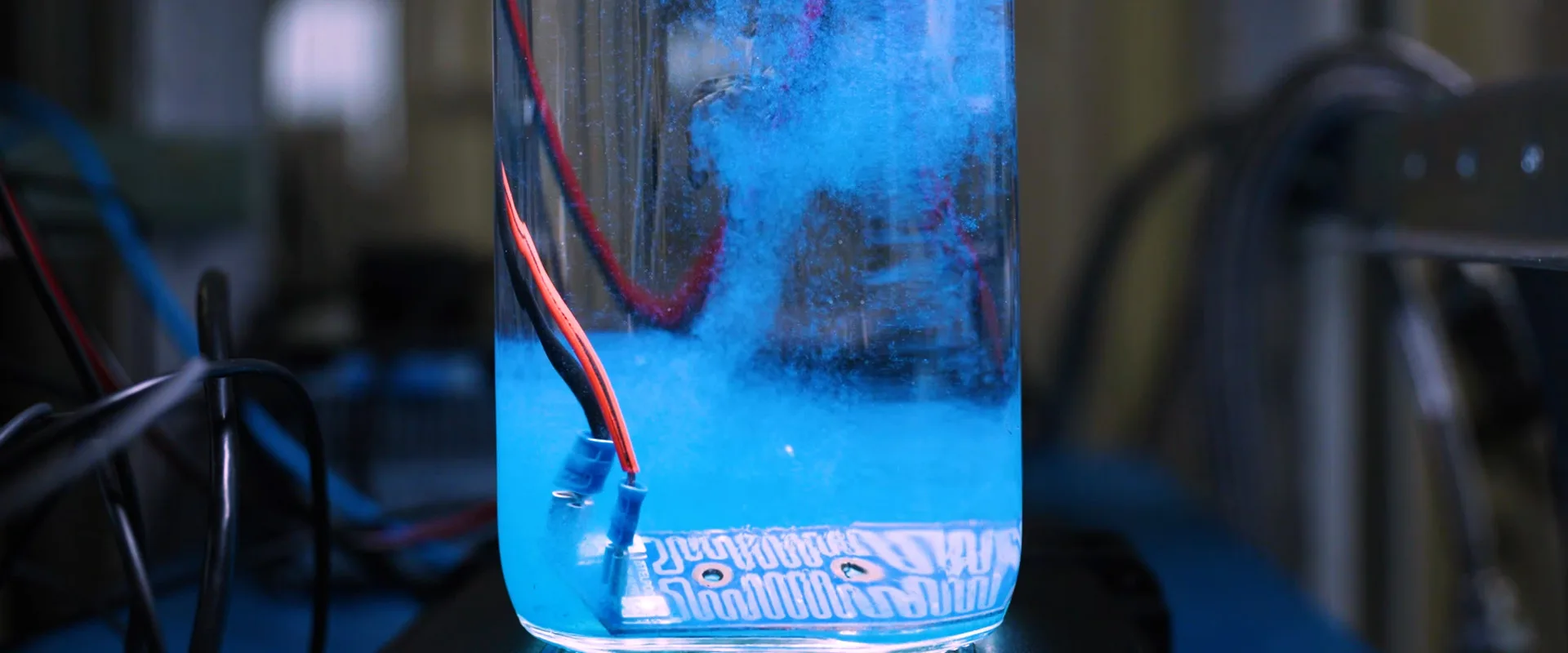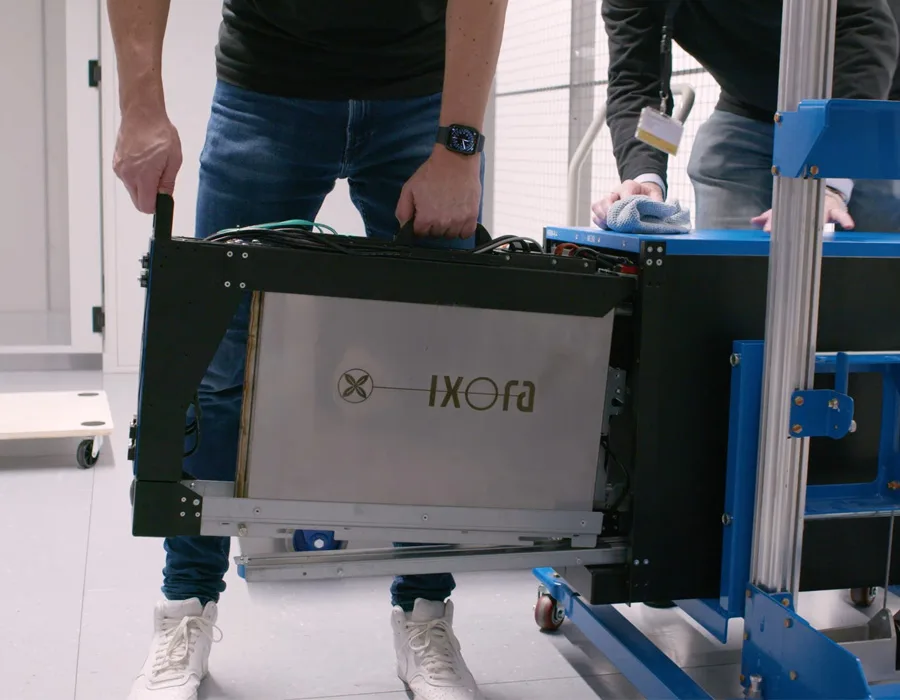Who dares to immerse their server in oil? Ludo Baauw, CEO of Intermax Group, invites customers to innovate with him, iXora and NorthC by exploring a new way of cooling servers: immersion cooling. At the NorthC data center in Rotterdam Zestienhoven, this technology is already in use.
Baauw is the CEO of Intermax Group, a collective of seven managed service providers and managed security companies that work for many large enterprises, hospitals and government organizations. The company has 225 employees who keep more than 10,000 servers running. They do this with impressive efficiency, as these 10,000 servers together produce only 200 tons of CO₂ emissions per year, comparable to eight households’ footprint. “But we’re not easily satisfied,” says Baauw. “Our ambition is to reduce our CO2 emissions to zero by 2030. Additionally, the goal is to use less electricity every year — which is already deep green and officially causes no CO2 emissions.”

